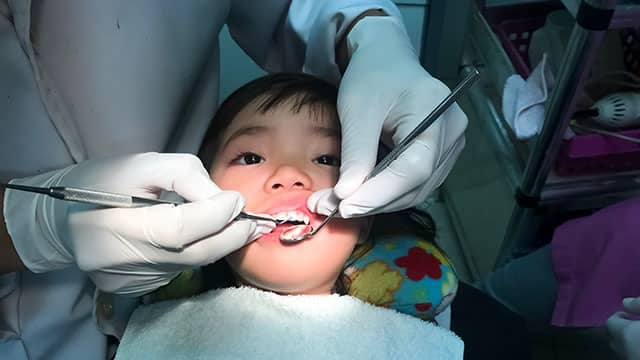Managing Dry Socket Pain
The primary treatment for a dry socket is pain management. In addition to the dry socket paste, your dentist may prescribe painkillers and send you home with directions on using ice packs and rinse gently with a saltwater solution. You still need to maintain good oral hygiene, so be particularly careful when using a toothbrush.
What Early Lip Cancer Looks Like
Lip melanoma typically affects the surface cells of the skin. Common signs or symptoms of lip cancer include visible irregularities in the skin on the lower lip. According to the American Cancer Society, a red patch on your lip that becomes crusty, itchy, or bleeds is a warning sign. Lumps or wart-like growths on the lips are also skin irregularities that can be signs of melanoma.
Lip Cancer Causes
Lip cancer, like many cancers, can be attributed in part to lifestyle factors. The following factors increase the risk of lip cancer:
- Exposure to ultraviolet (UV) radiation
- Tobacco use
- Alcohol use
Exposure to ultraviolet (UV) radiation is a significant risk factor for developing melanoma on your lips and other parts of your body. Because UV rays primarily come from sunlight, apply sunscreen to your exposed skin, including protective lip balm as a preventative measure.
Tobacco and alcohol use are also contributors to oral and lip cancer. People who drink three to four alcoholic beverages a day are twice as likely to develop oral cancer than those who do not. According to the National Cancer Institute people who smoke can be ten times more likely to develop oral cancer than nonsmokers. The risk of oral cancer is two to three times greater when tobacco use and daily alcohol consumption are combined.
Differences between cold sores and cancer
If you notice open sores on your lips, they may be signs of cancer, but they may not be. Although cancerous lesions may look or feel like cold sores when they appear, they won't heal the same as cold sores. Recurrent cold sores aren't a sign of cancer. If you need help identifying lip cancer or cold sores, read this article about cold sores to learn the signs and symptoms.
Some warning signs of lip cancer can be simply a pale skin area that looks like a scar–or maybe none of the symptoms listed. The most important thing to remember is if you notice a change in your lips' appearance, talk to your dentist. Your dentist can show you lip cancer pictures and signs and how to differentiate them from other skin infections.
Early Diagnosis of Lip Cancer
Early diagnosis of all cancers is vital, as lip cancers are almost always curable when caught and treated early. You should check your lips regularly for skin changes like mentioned above, such as sores, white patches, or red patches that could be signs of cancer.
See your dentist for scheduled oral cancer screenings. During this time, they will examine your lips and the rest of your mouth for cancerous tissues – visibly or otherwise. If they notice changes or signs of cancer, they can act quickly to biopsy and check for cancer cells.
It's essential to quickly diagnose and treat melanomas to prevent the disease from progressing to other parts of your body. Once diagnosed, your primary care physician and dentist will create a treatment plan. Treatments include surgically removing the melanoma, radiation therapy, drug therapy, or immunotherapy.
Lip Melanoma Differs from Other Cancers
As discussed early, one in five people develops skin cancer in their lifetime, including lip cancer. This type of disease differs from others because it is almost always curable if caught early, and it typically appears on your skin. Other types of cancer appear in other parts of your body, such as in organs or bones.
Lip Cancer Prevention and Treatment
The best prevention is to examine your lips and report any changes in the skin, such as lip color changes, sores, or growths, to your dentist or physician as soon as possible. According to the Mayo Clinic, two treatments are common with this type of cancer.
The first is to surgically remove the patch or sore and remove some surrounding tissue to ensure all cancerous cells are gone. The second form of treatment is radiation therapy. This process applies safe sources of radiation to kill the cancer cells in your mouth. Your dentist should thoroughly examine the rest of your mouth for issues with your gums and teeth and treat those first before radiation therapy.
Lip cancer can be treated and often cured if diagnosed early, so examine your lips regularly for appearance changes. Then report those changes to your dentist or physician as soon as possible. With early detection and quick treatment, lip cancer can be eliminated.
This article is intended to promote understanding of and knowledge about general oral health topics. It is not intended to be a substitute for professional advice, diagnosis or treatment. Always seek the advice of your dentist or other qualified healthcare provider with any questions you may have regarding a medical condition or treatment.
ORAL HEALTH QUIZ
What's behind your smile?
Take our Oral Health assessment to get the most from your oral care routine
ORAL HEALTH QUIZ
What's behind your smile?
Take our Oral Health assessment to get the most from your oral care routine















